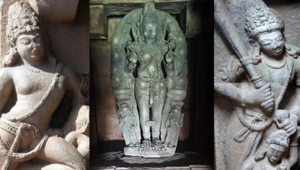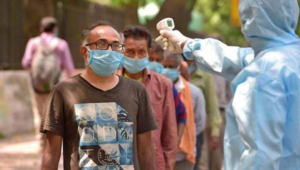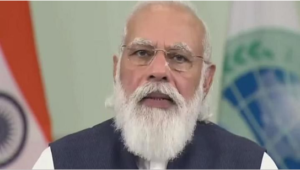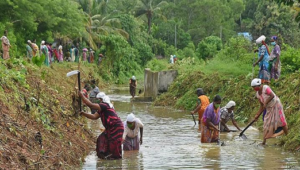
The News Editorial Analysis 5th Jan 2022
Intent, ironies of anti-conversion bill in Karnataka
The anti-conversion Bill in Karnataka kicked up a storm of arguments in the last fortnight. The Bill was passed in the Legislative Assembly days before Christmas but is yet to get passage in the Legislative Council. Chief Minister Basavaraj Bommai brought this Bill in such a tearing hurry that it seemed he was only covering up his lack of electoral appeal and administrative inefficiency. Not to mention the other dark clouds gathering over his government. The local media has constantly highlighted the mercenary attitude of the system he heads.
When a leader cannot use the tools of reason to engage and persuade, when he has no patience or regard for democratic methods, he takes out creamy cupcakes of emotion and breadsticks of sophistry to serve people. Bommai, who is without a proper mandate on the chief minister’s chair, has done just that. He is accused of serving his ideological benefactors, who judge his every step and remind him at every bend that he grew up in an alien political yard—meaning, his father was schooled in a different tradition and he carries his name. It is this memory that is held to ransom and placed next to the largesse of power they have bestowed on him. Is his faithfulness to that memory or to power? That is a question that perhaps swirled around some time ago, but with the anti-conversion Bill, he has confirmed his choice. There is no longer a dilemma.
I will not get into the legal provisions of the Bill and its constitutional validity. People opposing it have pointed out the fate of a similar law in the courts of Gujarat and Rajasthan. What I would like to instead chase is the intent and ironies involved in this entire exercise. First about intent: It should be clear to us by now that extreme right-wing projects, conceived without necessary statistical and circumstantial evidence, are flaunted essentially to establish intent and infiltrate the emotional space. They are not really worried about what will happen in a court of law. They may even be certain about the legal trajectory it may take. They will still pursue it because the idea gets a grand platform and allows their intent to take root, but more importantly, helps drive home the point that the Constitution is actually not aligned to their purpose, the majoritarian intent. This helps them seek louder voices against the Constitution as we have witnessed recently in Haridwar and elsewhere. They keep pushing their envelope of provocation and unreason.
The opposition parties that react to legislative pushes such as the anti-conversion Bill speak and act with little conviction and zero moral outrage. The liabilities they may accrue in an electoral ring always weigh heavily on them. In the case of Karnataka, the opposition Congress was thunderstruck in the Assembly when the Bill was tabled. The BJP threw a surprise. It said the Siddaramaiah-led Congress government had actually got the Bill drafted in 2016 and the chief minister himself had asked for it to be placed before the Cabinet. The fact that the Congress draft did not go further at the time and its Bill was not as stringent as the BJP’s does not matter. What matters is that the Congress saw a need to get an anti-conversion Bill drafted in the first place. It was again about intent, and they stood exposed. The BJP has learnt to play the intent game better and it often uses the Congress’ doublespeak to power it further.
Coming to ironies, the anti-conversion Bill actually strikes at the philosophical roots of the BJP’s largest support base. The Lingayats have been with the BJP for over two decades now and it is a community that was formed out of large-scale conversions in the 12th century to overcome caste indignities and establish a very humane order. The revolutionary acts of mystic and social reformer Basaveshwara, like a precious string of pearls, have become the heritage and history of Karnataka.
To this day, the Lingayat community, through its seminaries that number a few hundred in Karnataka, serve people through charities of education and food. Now, if these charities are sought to be looked at suspiciously, in a manner the Christian or Muslim communities are viewed, then it also criminalises the intent of the Lingayat seminaries. The Bill, when it becomes law, can be applied blindly. Liberal activists and the media who have spoken about this Bill discriminating against religious minorities, Dalits, tribals and women have not highlighted what it may do to the largest social reform movement in the state. They do not realise that there is scope to construct progressive politics around this community, which is also politically very powerful.
The irony of ironies is that Chief Minister Bommai himself is a Lingayat, and his name ‘Basavaraj’ is inspired by Basaveshwara himself. His ideological benefactors in the BJP may be cleverly using him as an instrument to alter the support character of the party. From being a party dominated by Lingayats, as it was under B S Yediyurappa and still so, they may be working to make it a pan-Karnataka party with a deeper Hindutva agenda. Yediyurappa, the biggest political mascot of the BJP in the state, should have seen through this game and stood up against it, but he callowly submitted and argued for the passage of the anti-conversion Bill.
The BJP knows that it will lose the next election under Bommai or whoever else may replace him (if the rumours are to be believed), so this is a long-term move of the party to shed its caste saffron and smear itself with that of religion. Yediyurappa was a politician who operated on the Mandal principle and the ‘kamandal’ was only incidental to him. The party wants that memory to be put away now. If one goes by this logic, then the next chief minister of Karnataka that the BJP will sponsor will be a non-Lingayat. Therefore, the intent and ironies may all be deliberate.
Supreme Court to hear EWS quota case today
A three-judge Special Bench of the Supreme Court, led by Justice D.Y. Chandrachud, is scheduled to hear on Wednesday a case raising questions on the ₹8 lakh annual income limit criterion fixed to identify the economically weaker sections (EWS) of society for extending reservation benefits.
The development came hours after Chief Justice of India (CJI) N.V. Ramana on Tuesday agreed to adjust the various combinations of the court’s Benches, fixed for the week, to accommodate the case. The other two judges on the Special Bench are Justices Surya Kant and A.S. Bopanna.
Urgent listing
The Union government, represented by Solicitor-General Tushar Mehta, has been making back-to-back oral mentioning before the court, on January 3 and 4, to hear the case quickly. January 3 — the very day the court reopened after Christmas holidays — saw Mr. Mehta plead with Justice Chandrachud, who has been hearing the EWS case, for an urgent listing.
On Tuesday, again, Mr. Mehta came up before the CJI’s Bench to press for a hearing on January 5 itself.
Mr. Mehta underscored that the National Eligibility-cum-Entrance Test for postgraduate courses (NEET-PG) counselling was suspended since late November because of the questions raised about the criterion in the EWS quota. Medical admissions were getting delayed, and the issue had to be resolved quickly.
Resident doctors in Delhi had recently organised a massive protest over the delay in the counselling schedule, leading to violence. Mr. Mehta submitted to the court that the doctors were rightly agitated about their future prospects. He urged the CJI to list the case on January 5.
During the interaction, Chief Justice Ramana said the court’s Benches had already been fixed for the entire opening week of miscellaneous hearings. The EWS case was heard by a Bench of three judges led by Justice Chandrachud, while the Benches were sitting in a combination of two judges for the week.
But Mr. Mehta persisted that even a two-judge Bench led by Justice Chandrachud would be enough to hear the case as long as it was scheduled on Wednesday.
The CJI agreed in court to see whether the schedule could be juggled to form a three-judge Special Bench.
NEET counselling was suspended after the Union government, on November 25, informed the court about its “considered decision” to revisit the “criteria” determining EWS. The government had asked for four weeks to form a review committee, examine the issue and file a report.
The government’s submission followed rounds of grilling from the court in past hearings to reveal the logic and study before zeroing in on the “exact figure” of ₹8 lakh as the annual income limit to identify EWS of society.
The Centre’s review committee submitted a report on December 31, supporting the ₹8 lakh income threshold as a “reasonable” basis to determine EWS.
The court’s query was significant as the One Hundred and Third Constitutional Amendment of 2019, which introduced the 10% EWS quota, is itself under challenge before a larger Bench.
The Amendment is under question for making economic criterion as the sole ground for grant of reservation benefits.
The EWS case was heard by a Bench of three judges led by Justice Chandrachud, while the Benches were sitting in a combination of two judges for the week.
But Mr. Mehta persisted that even a two-judge Bench led by Justice Chandrachud would be enough to hear the case as long as it was scheduled on Wednesday.
The CJI agreed in court to see whether the schedule could be juggled to form a three-judge Special Bench.
NEET counselling was suspended after the Union government, on November 25, informed the court about its “considered decision” to revisit the “criteria” determining EWS. The government had asked for four weeks to form a review committee, examine the issue and file a report.
The government’s submission followed rounds of grilling from the court in past hearings to reveal the logic and study before zeroing in on the “exact figure” of ₹8 lakh as the annual income limit to identify EWS of society.
The Centre’s review committee submitted a report on December 31, supporting the ₹8 lakh income threshold as a “reasonable” basis to determine EWS.
The court’s query was significant as the One Hundred and Third Constitutional Amendment of 2019, which introduced the 10% EWS quota, is itself under challenge before a larger Bench.
The Amendment is under question for making economic criterion as the sole ground for grant of reservation benefits.
Constitutional validity of Dam Safety Act challenged in HC P. Wilson
It blatantly usurps States’ power, says DMK MP
Dravida Munnetra Kazhagam (DMK) Lok Sabha member S. Ramalingam, representing Mayiladuthurai constituency in Tamil Nadu, has moved the Madras High Court challenging the constitutional validity of Dam Safety Act, 2021 on the grounds that it goes against federalism and is beyond the legislative competence of the Centre.
Acting Chief Justice Munishwar Nath Bhandari and Justice P.D. Audikesavalu on Tuesday accepted a request made by senior counsel P. Wilson for an early hearing of the case and directed the Registry to list the matter for January 10. The counsel said he would, by then, serve papers on Additional Solicitor General R. Sankaranarayanan.
In an affidavit filed in support of his petition, the Member of Parliament wrote: “The impugned (under challenge) Act is a legislation passed by the Union through brute majority to blatantly usurp the States’ power in broad day light when legislators like myself were helpless to prevent the violence done to the Constitution.”
Nevertheless, reposing utmost faith and belief in the High Court that it would certainly annul the “unconstitutional” law by exercising the power of judicial review, the litigant claimed that the Act usurped the power of the State governments and placed the operation of specified dams under the control of the Centre.
He contended that certain terms, including the word ‘dam’ in the Act, had been deliberately defined vaguely to give unbridled power to the Centre to treat any dam as a ‘specified dam’. He also feared that if those definitions were followed, almost all dams in the country would fall under the purview of the Act.
Referring to Entries 17, 18 and 35 of List II (State list) of the seventh schedule of the Constitution, the petitioner contended that dams would squarely fall within the legislative domain of State governments. The power of the Centre under Entry 56 of List I (Union list) was only with respect to inter-State rivers or river valleys and nothing more, he asserted.
“Entry 56 cannot be stretched to include dams and embankments exclusively within the control of the States. Parliament cannot make a declaration in relation to a subject matter of List II entries when such power is conspicuously absent in List I subjects. Power over the subject ‘interstate river and river valley’ cannot be confused with the control over dams,” the MP said.
Claiming that the State governments would be in a better position than the Centre to take a call on dam safety, the legislator told the court that the Act under challenge, if not nullified, would have an adverse impact on agriculture, fisheries, hydro power generation, provision of drinking water to the people and so on.
He also pointed out that the Act provided for criminal prosecution for not obeying directives issued under the legislation. “State authorities have to face the music under Section 41 if the directions of the Union authorities are not obeyed… Bureaucrats will now be kept under fear and threat which will lead to mechanical compliance of the dictates of the Union Government,” he lamented
The hint of a ‘one nation one NGO’ regime
The current purge against civil society organisations seems to be indiscriminate and alarming
On December 31, 2021, the Ministry of Home Affairs issued another public notice extending the validity of registration certificates that were expiring from September 29, 2020 to March 31, 2022 till the latter date, provided that the request for renewal had not been rejected. What should have been a routine activity of the Ministry has turned out to be a fairly detailed exercise of scrutiny, resulting in a paralysis in granting permissions. The levels of due diligence and the information sought on the one hand and the annual declarations to be given by the board members of civil society organisations on the other have increased significantly. The mandatory opening of bank accounts for foreign contributions has been centralised in one branch of the State Bank of India. The linking of Permanent Account Number (PAN), Aadhaar number and mapping it with the bank account/s of the individual board members are happening with gusto. All this has resulted in a chill settling over the people who are and have been associated with civil society organisations serving a social or cultural cause. The registrations under Foreign Contribution (Regulation) Act (FCRA) have beenlong necessitated in order to undertake due diligence of the causes for which the organisation is working for and also to have a handle on the traceability of funds.
The bottom line in Blinken’s foray into Southeast Asia
The aim was to drive home the message that America’s Indo-Pacific policy is not just aimed at deterring China’s rise
The visit by United States Secretary of State Antony J. Blinken to Southeast Asia in December 2021 — his first since becoming Secretary — underscores the importance that is being accorded to this region by the Joe Biden administration. While Mr. Blinken visited Indonesia and Malaysia, he could not go to Thailand after a COVID-19 case was detected in the press corps accompanying him (He landed there, spoke to the Thailand Deputy Prime Minister expressing regret, and then left for the U.S.). In his speech at Universitas Indonesia on December 14, Mr. Blinken laid out the five core principles shaping the American strategy of a free and open Indo-Pacific. Alongside, he also underlined the mechanisms that the U.S. is adopting to implement these core principles.
Three-judge Bench to hear CJAR petition on 2017 fine
Plea seeks ₹25 lakh to be treated as donation to lawyers’ body
The Supreme Court on Monday referred to a three-judge Bench a plea made by Campaign for Judicial Accountability and Reforms (CJAR) to consider ₹25 lakh paid by it on the basis of a 2017 court order to be treated as a donation.
In December 2017, a three-judge Bench of Justices R.K. Agrawal and Arun Mishra (both retired now) and A.M. Khanwilkar imposed a cost of ₹25 lakh on CJAR to be paid to the Supreme Court Bar Association.
The reason for imposing the hefty cost was a PIL petition filed by CJAR, represented by advocate Prashant Bhushan, demanding a Special Investigation Team into a conspiracy allegedly hatched by several persons, including a retired High Court judge, to bribe Supreme Court judges for a favourable order in a private medical college case.
The plea by CJAR to treat the payment as a donation to the Supreme Court Bar Association came up for hearing before a two-judge Bench of Justices Khanwilkar and C.T. Ravikumar on Tuesday. This Bench said that since the earlier order was passed by a three-judge Bench, any modification in the intent of the 2017 order could only be considered by a Bench having the same number of judges. Attorney General K.K. Venugopal agreed with the court’s stand and indicated that the money was welcome to provide welfare and relief for many lawyers.
Senior advocate Rajeev Dhavan, appearing for the organisation, said CJAR has several respected senior lawyers and judges onboard, and considering their long services to the legal profession, the money should be treated as a donation rather than as a punishment.
Mr. Bhushan said the money should be released to the lawyers’ association so that it could be put to good use as soon as possible.
Identical petition
The petition of the CJAR was identical to a petition filed by advocate Kamini Jaiswal on the same issue.
In 2017, the court had termed both the Jaiswal and CJAR petitions as efforts to “seriously jeopardise the independence of the judicary”.
The Justice Agarwal Bench had, four years ago, dismissed the Jaiswal petition by expressing hope that “good sense prevail over the legal fraternity and amends be made as lot of uncalled for damage has been made to the great Institution in which public reposes their faith”.
ICMR approves indigenous kit to detect Omicron
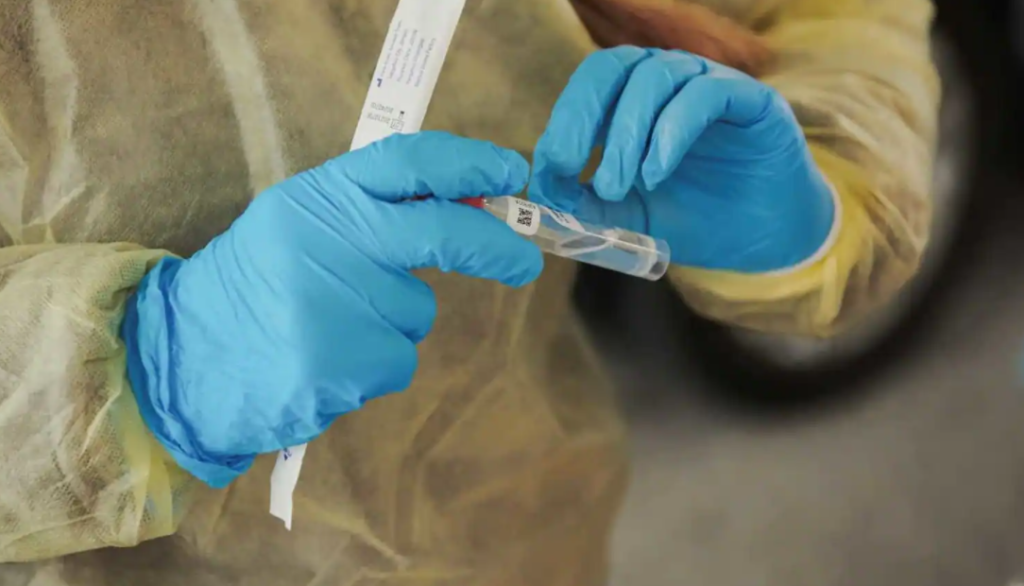
WHO calls for increased genome sequencing as ‘timely information is needed to tailor public health response’
The Indian Council of Medical Research (ICMR) has approved a testing kit for detecting the Omicron variant of SARS-CoV-2. The kit is manufactured by Tata Medical and Diagnostics and is named OmiSure. The kit will be used to confirm Omicron in patients with its S-Gene Target Failure (SGTF) strategy.
The ICMR’s letter of approval dated December 30 said: “The tests have been performed as per the manufacturer’s instructions. Responsibility for batch-to-batch consistency lies with the manufacturer.”
The kit currently in use to detect Omicron in India has been developed by the U.S.-based scientific instrumentation company Thermo Fisher. It, too, uses the SGTF strategy to detect the variant.
The World Health Organization South-East Asia Region on Tuesday said that the focus should now be on enhancing genome sequencing in view of the Omicron variant.
“Diagnostic services are critical for public health. During an outbreak, timely information is needed to guide and tailor public health response to stop/ curtail disease spread. Hence, since the onset of the COVID-19 outbreak, one of the key areas of the WHO’s support has been to strengthen laboratory capacities, with the focus on addressing inequalities in access to COVID-19 diagnostics tools,” said Poonam Khetrapal Singh, Regional Director, WHO South-East Asia Region.
Genomics consortium
The WHO is proposing to set up a SARS-CoV-2 genomics consortium in Southeast Asia this year. The consortium will help enhance genomic sequencing and surveillance.
This will also help improve the timely use of genomic data for public health decision-making and to strengthen preparedness and response to future outbreaks/ pandemics, added a release issued by the group.
Stating that challenges remain, Dr. Singh said that limited trained workforce and other resources are key barriers identified by countries for sustained long-term testing and sequencing capacities. In a bid to address this, the WHO is building a community of practice — sharing of experiences through webinars and sharing of information through platforms such as the regional laboratory network.
“With COVID-19 cases once again beginning to increase, we need to remain vigilant. Which means enhancing our capacities to quickly test and provide timely results, and conduct genome sequencing for new variants,” Dr. Singh said.
The Delhi High Court will pronounce on Thursday its decision on a plea by BJP leader Subramanian Swamy challenging the Air India disinvestment process in which the Tatas emerged as the highest bidder at ₹18,000 crore.
A Bench of Chief Justice D.N. Patel and Justice Jyoti Singh said, “We will pass orders the day after,” while asking the parties involved in the case to submit their written responses by Wednesday.
Mr. Swamy, who appeared in person, sought a direction to the government to quash the present Air India disinvestment process, terming it “arbitrary, unconstitutional, unfair” and “rigged in favour of the Tatas”. He said the only other bidder in the process was a consortium led by the owner of SpiceJet, which was facing insolvency proceedings in the Madras High Court and thus could not have bid.
Solicitor-General Tushar Mehta contested the petition, saying disinvestment was a policy decision that could not be contested in courts. He argued that though SpiceJet was facing insolvency proceedings, it was never part of the consortium that bid for Air India. “It was led by its owner Ajay Singh,” he added.
Mr. Swamy in his petition argued that the disinvestment of Air India by way of transfer of management control and sale of 100% of its equity shares held by Government of India to Talace Private Ltd. was against the interests of national integrity and security. “The Tatas are very much a part of Air Asia,” he said.
Mr. Mehta said that Talace, a wholly owned subsidiary of Tata Sons Private Ltd., which won the Air India bid, had nothing to do with Air Asia.
He said any case Air Asia faced in the past was irrelevant here.
Senior advocate Harish Salve, representing the Tatas, said the successful bidder here was a 100% Indian company owned 100% by an Indian.
The News Editorial Analysis 4th Jan 2022






